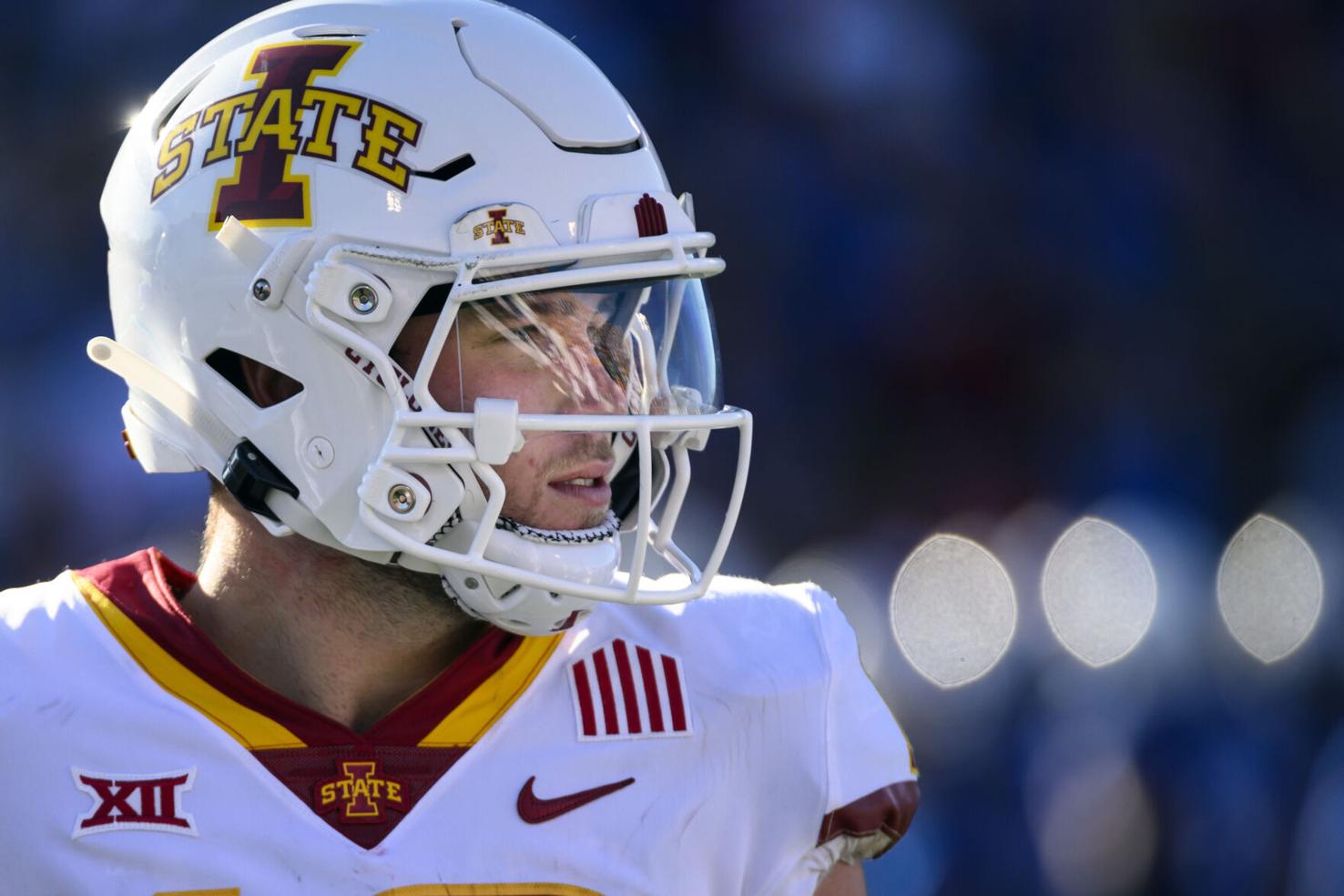STILLWATER — On Monday, Oklahoma State wide receiver Arland Bruce IV pleaded guilty to one count of underage gambling.
Weeks before the Cowboys opened the season against Central Arkansas, Bruce — a transfer from Iowa this offseason — was entangled in an illegal gambling probe into student-athletes at the University of Iowa and Iowa State University.
Sept. 18, 2023 video. The Oklahoma State Cowboys dropped to 2-1 for the season after a home loss to South Alabama. Video courtesy/OSU Athletics
Bruce, along with former teammates Jack Johnson and Reggie Bracy, were initially charged with tampering with records after Bruce allegedly created an account on the popular gambling site DraftKings under the name Vincent Bruce.
He allegedly placed 132 bets, including some on Hawkeye football games.
People are also reading…
Ahead of Oklahoma State’s conference opener against Iowa State on Saturday at 3 p.m., Bruce and several prominent Cyclones not playing highlighted the sports gambling issue in college athletics.
“Vegas lights don’t stay on for people that win, they stay on for people that lose,” OSU coach Mike Gundy said at Big 12 Media Days.
“Gambling can cause a lot of problems in a person’s life. Families can be broken up over it, money situations, it’s not a good situation.”

Iowa State quarterback Hunter Dekkers was accused of gambling on Cyclone sports events, including a football game, and was charged on Aug. 1 with tampering with records related to an Iowa Criminal Division investigation into sports gambling.
Like the Hawkeyes, the state’s gambling investigation decimated ISU coach Matt Campbell’s roster. Earlier in the month, ISU quarterback Hunter Dekkers — who as a backup QB allegedly bet on ISU’s 24-21 win against OSU in 2021 — and linemen Jacob Remsburg and Dodge Sauser pleaded guilty to lesser charges. Leading rusher Jirehl Brock voluntarily left the program after being entwined in the investigation.
OSU (2-1) hasn’t suffered as brutal a blow to its team’s composition. Bruce was primed to be a contributor in the Cowboys’ offense this season but was taken out of plans during fall camp.
Around the rest of the Big 12, similar concerns from coaches and players about the issue. This summer, the Tulsa World spoke with several Big 12 head coaches about sports gambling gaining popularity the past several years.
“I think this is something maybe the people have had the wool pulled over their eyes for a little bit,” West Virginia head coach Neal Brown told the Tulsa World at Big 12 Media Days. “As gambling has become more prevalent, and what I mean by that, it’s legal. What once was undercover is now out in the open, college sports betting there’s never been a point where it’s been higher.”
Brown’s correct. Since the Supreme Court cleared way for legalized sports betting in May 2018, 37 states now have it. In that span, more than $220 billion was spent on sports gambling.
Apps like DraftKings and FanDuel are easily accessible to college students. A recent survey showed half of college students aged 18 to 22 placed wagers on sports. The NCAA currently is working on an athlete-only assessment this fall.
“If you want to go to a casino and play blackjack, have at it,” Houston coach Dana Holgorsen said. “That’s not against the rules as long as you’re 21. But placing gambling bets is gonna get you banned and kicked out. It’s serious. We’re seeing all the NFL stuff, and these are professionals.”
The solution most coaches brought up, involve education.
Most compliance officers speak to teams ahead of the season to remind them of the NCAA policies. Additionally, coaches, like Holgorsen set up guest speakers to inform teams about the penalties.
The NCAA is stern with its policies: “Student-athletes who engage in activities to influence the outcomes of their own games or knowingly provide information to individuals involved in sports betting activities will potentially face permanent loss of collegiate eligibility in all sports.”
Conferences even take step toward protecting the games. Along with the Southeastern Conference and Pac-12, the Big 12 partnered with U.S. Integrity, a sports data integrity company helping monitor sports gambling to detect fraud. The firm helped expose bets on Alabama baseball that led to head coach Brad Bohannon being fired.
“We know the ins-and-outs of it,” said UCF quarterback John Rhys Plumlee. “It’s something that we don’t really play around with. On Twitter, you’ll just be scrolling and then you see, ‘Man that guy just ruined his whole deal.’”
The new Tulsa World app offers personalized features. Download it today.
Users can customize the app so you see the stories most important to you. You can also sign up for personalized notifications so you don’t miss any important news.
If you’re on your phone, download it here now: Apple Store or Google Play
